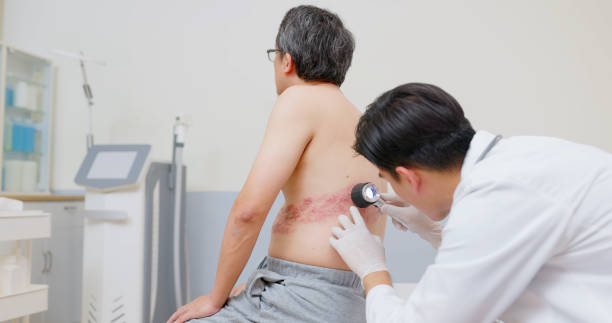Shingles is an infection that results in painful blisters or rash on the skin. It is caused by a virus and it can affect any area of the body. The rash usually appears as a single strap of blisters or a band of rash on the skin, and it is common in people who have treated chickenpox before. The virus stays in their body after the treatment, and it causes shingles later.
Shingles are very painful, but they are not life-threatening. Vaccines can help reduce your risk of contracting the infection, and early treatment can significantly decrease the risk of complications and shorten the time of the infection.
Causes
The varicella-zoster virus causes shingles; it also causes chickenpox; the virus belongs to a group of viruses called herpes viruses, so shingles is called herpes zoster.
If you suffer from chickenpox and recover, you will most likely develop shingles years later because, after recovery from chickenpox, the virus stays in your body for the rest of your life. It remains inactive in your nervous system but may reactivate later and travel along the nerve pathways to your skin, causing shingles.
However, not everyone with chickenpox will develop shingles; the virus may remain inactive for the rest of their lives. It is still unclear why the virus causes shingles, but experts suggest it may result from a diminished immune system as a person ages.
Symptoms of Shingles
The early symptoms of shingles include:
- Chills.
- Fever.
- Tiredness.
- Stomach upset.
- Headache.
- Sensitivity to light.
Other symptoms may appear later, including:
- Redness on the skin in the affected area.
- Itching, burning or tingling feeling on the skin.
- Fluid-filled blisters that break open and scab over.
- Raised rash on the affected area.
- Mild to severe pain on the skin.
Treatment
There is no cure for shingles, but early detection and treatment can help you relieve symptoms, heal faster and lower the risks of complications. The medications for this treatment include:
- Famciclovir.
- Acyclovir (Zovirax).
- Valcyclovir (Valtrex).
A doctor may also prescribe:
- Corticosteroids and local anaesthesia injection.
- Capsaicin topical patch.
- Numbing agents like lidocaine which can be sprayed or applied as gel, cream or skin patch.
- Anticonvulsants such as gabapentin.
- Tricyclic antidepressants.



